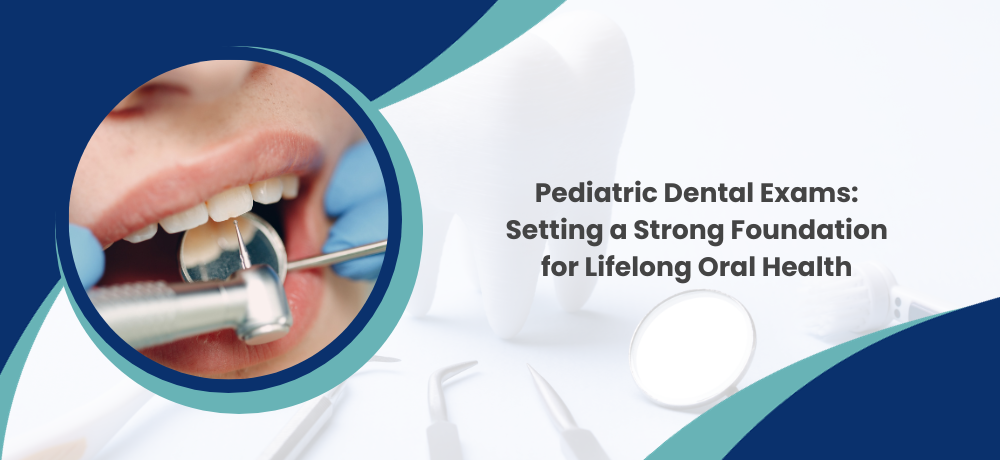Pediatric Dental Exams: Setting a Strong Foundation for Lifelong Oral Health

At Georgian Square Dental (https://www.georgiansquaredental.com/), our commitment to quality dental care extends to patients of all ages, including the littlest smiles. Pediatric dental exams are a vital component of ensuring lifelong oral health for children. In this comprehensive guide, we will explore the importance of pediatric dental exams, their role in setting a strong foundation for oral health, and what parents can do to support their children's dental well-being.
Understanding Pediatric Dental Exams
Before we delve into the details, let's first understand what pediatric dental exams entail:
1. What Are Pediatric Dental Exams?
Pediatric dental exams are dental check-ups specifically tailored for children and adolescents. They are designed to monitor the oral health of young patients and address any dental issues as they arise.
2. When Should Pediatric Dental Exams Begin?
The American Academy of Pediatric Dentistry recommends that a child's first dental visit should occur within six months of the eruption of their first tooth or by their first birthday, whichever comes first.
3. The Role of a Pediatric Dentist
A pediatric dentist is a dental specialist with additional training in children's dental care. They are equipped to provide age-appropriate exams, preventive care, and treatments for children.
The Importance of Pediatric Dental Exams
1. Early Detection and Prevention
Pediatric dental exams allow for the early detection of dental issues such as cavities, misalignment, and bite problems. Early intervention can prevent these issues from becoming more severe. Routine exams ensure that any dental concerns are identified promptly, allowing for timely treatment.
2. Oral Hygiene Education
Pediatric dentists use dental exams as an opportunity to educate both children and parents about proper oral hygiene practices.
a. Brushing and Flossing: Children learn the importance of regular brushing and flossing and are guided on how to do it effectively.
b. Dietary Guidance: Parents receive advice on managing their child's diet to prevent tooth decay and gum problems.
3. Building Trust and Reducing Anxiety
Starting dental visits at a young age helps children become familiar with the dental environment, reducing anxiety and fear associated with dental care.
a. Positive Experience: Pediatric dentists are skilled in creating a friendly and comfortable atmosphere, making dental visits a positive experience for children.
4. Monitoring Growth and Development
Monitoring the growth and development of your child's teeth and jaws is an integral part of pediatric dental care. Regular assessments by a pediatric dentist help identify any issues related to tooth eruption, spacing, or alignment at an early stage. This proactive approach ensures that necessary interventions can be implemented promptly, allowing for optimal dental development and a healthier, more confident smile as your child grows.
What to Expect During a Pediatric Dental Exam
During a pediatric dental exam, you can expect the following:
1. Thorough Examination
The dentist will examine your child's teeth, gums, and overall oral health. They will check for cavities, gum disease, and any signs of developmental issues.
2. Professional Cleaning
A dental hygienist may perform a gentle cleaning to remove plaque and tartar buildup from your child's teeth.
3. X-Rays (If Needed)
X-rays may be taken to get a more detailed view of your child's dental structures, helping to identify any hidden issues.
4. Oral Hygiene Guidance
Both you and your child will receive advice on maintaining good oral hygiene practices at home.
5. Treatment Recommendations
If any issues are identified, the dentist will discuss treatment options and recommendations with you.
Maintaining Pediatric Oral Health at Home
In addition to regular dental visits, here are some tips to support your child's oral health at home:
1. Establish a Routine
Set a regular routine for brushing and flossing, and supervise your child until they can effectively brush and floss on their own.
2. Healthy Diet
Limit sugary snacks and beverages in your child's diet and encourage the consumption of nutritious foods like fruits, vegetables, and dairy products.
3. Use Fluoridated Toothpaste
Use a fluoride toothpaste appropriate for your child's age to strengthen their tooth enamel.
4. Avoid Bottle Decay
Avoid letting your child fall asleep with a bottle containing milk, formula, or juice to prevent bottle decay.
Pediatric dental exams are the cornerstone of lifelong oral health. Starting dental care early, maintaining regular check-ups, and practicing good oral hygiene at home set the stage for a lifetime of healthy smiles. If you are looking for dental care, then contact Georgian Square Dental, our White Rock family dentist team is dedicated to providing informative and quality dental care for children, ensuring a comfortable and worry-free experience.
Get in touch with us today
To learn more about what we do, please click here. To contact us, please click here
or call us at (604) 385-0074.